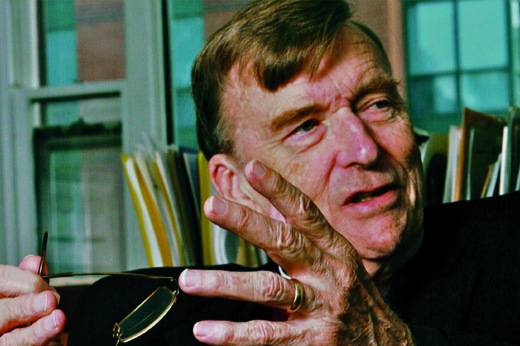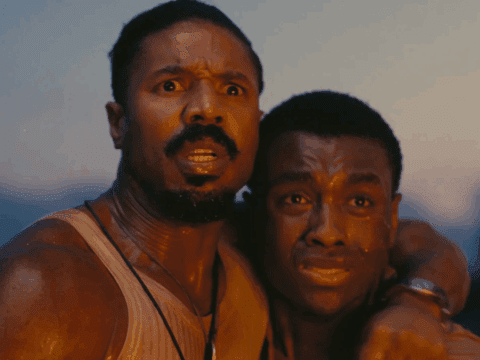You’re 78 years old, you’ve written or co-authored 22 books, and you’ve said this is your last one. How does it feel to be John Spong these days?
A Life is always unfolding and wonderful. You have to learn to live in the present, and whatever comes, comes. At some point I’ll be out, but it won’t be because I choose to be out; it will just be that the time has come.
Q In your new book, Eternal Life: A New Vision, you say, “Death has a peculiar ability to call us out of hiding.” What do you mean?
A If we didn’t have death, imagine what life would be like. You’d postpone living. Death is the pressure that causes you to invest in the moment. Death rings the bell on all procrastination and makes today precious. We’ve got a strange culture that no longer believes in God. And because of that, we have this strange thing about death. In America, they keep bodies living by artificial sources because they can’t embrace that death is as much a part of life as being born. We need to embrace both of them.
Q You’re really tough on Christian theology’s traditional proclamations about life after death. You’ve described them as “reassuring but spurious, pious clichés.” Why do you need to be so harsh on beliefs that are comforting to so many people?
A There are ways to go through death that are incredibly life affirming, but if all we do is repeat pious clichés, we are playing Karl Marx’s game of giving a religion that’s an opiate, designed to make people feel good. Life sometimes doesn’t make you feel good. There’s a lot of tragedy. Offering pie in the sky isn’t very helpful.
Q I’m heading back to my church this afternoon to do a funeral. If I don’t offer them hope — what you call “pie in the sky” — what do I offer them?
A I’d tell them that God is real. I’d tell them that life is not always easy. I’d tell them that the message of the Gospel is not that tragedy never happens, but that you’re never alone in that tragedy. And I’d try to incarnate that by walking with them through that tragedy. In a congregation, you need to confront the difficult issues in people’s lives before they arise personally — that’s part of what preaching and teaching is about. When the crisis comes, I practise the “ministry of being.” As clergy, we’re not capable of managing death, but as a pastor, you tell people in deeds, even more than in words, that they will get through it. The last time I preached at a funeral, I preached the contents of this book, and the response was just incredible. People are so used to hearing pious tripe, so I talked about the tragic elements of life and where hope is located. And I don’t think it’s located in assuring them that their loved one is sitting on a cloud somewhere.
Q Okay, but if that’s not where hope is located, where is it?
A I don’t think you can locate it, and that’s the problem with writing this book. I only have a language bounded by time and space. I’m trying to discuss something that’s not bounded by time and space. I don’t have a language — all I can do is point to it. So I couldn’t go through religious symbols, because they are all located in a supernatural being external to the world who’s sitting in some sort of judgment. And that’s not the God I can communicate anymore. But I don’t think that means there is no God. We need to reconceptualize the human experience of God. The more deeply we understand life, the more deeply we understand God as the source of that life . . . and that’s the direction the Christian faith is going to head in the 21st century.
Q That’s tough sledding, and the book is tough sledding.
A The book is not tough sledding for people who aren’t locked in the old Christian symbols.
Q I disagree. Let me give you an example of how it’s tough. People want to know where hope is to be found. So I ask you where hope is located, and you say, “You can’t locate it.” I think that’s not only tough, but ultimately disappointing to most people.
A I don’t think you can locate God or define God. All you can do is define the human experience of God, and that might be delusional. I’m not in the comfort-giving business. I don’t think that’s what Christianity is about. I think what Christianity is about is to give us the courage to live with integrity in the radical insecurity of life. Not to give us a pacifier. For Christians to say that what we need to do is artificially respirate the old symbols is nothing except a counsel of despair. And I don’t think we can play that game any longer. I think we are living into a period of history in which God is homeless — we don’t know how to locate God because we understand how great the dimensions of the universe are. We live in a world where we are forced to define ourselves as higher animals instead of fallen angels. And if anyone thinks that all we need to do is sing the old song, that’s the death of Christianity.
Q You write, “There is no supernatural God,” but you continue to call yourself a bishop. How do you reconcile those two things? How can you wear all the trappings of ecclesiastical office and at the same time deny the existence of God as the church defines God?
A The creeds that define God are fourth-century documents. How can you assume those documents are eternal?
Q But whatever else it is, the church is a club whose membership policy is based on those creedal statements. Isn’t there a point where you have to admit you no longer qualify?
A The club is not important to me. I don’t want to be outside the Holy Spirit. Liturgy bothers me more than anything else. You hear people in church saying, “Lord, have mercy.” That’s what a slave says to a slave master, and I don’t think that’s a proper relationship. Because I’m part of God. God lives in me. The Kingdom of God lives within. The more deeply and fully human I become, the more I reveal the God of life and being. And that’s the God I find in Jesus Christ. We need to redefine the entire Christian experience in the language of our day. The language of yesterday doesn’t do it anymore, and I refuse to make an idol out of it. I refuse to say, “That’s the truth, and I’m against the truth.” I’m saying, “I have a deeper experience of God than is present in the club.” And I think the club ought to listen.
Q I think the club is scared silly by people like you, and they don’t know what to do with you.
A That’s their problem. In a generation, the criticism of me will be that I was too conservative, not too radical.
Q A final question. The average person in the pews wants to know this: “When I die, is there anything more? Will I know my family, my friends, my loved ones?” How do you answer that?
A This entire book is an attempt to say yes. The person I am is so deeply shaped by powerful, life-giving relationships. If I share in God’s eternity, they have to be part of that. I can’t get beyond that. But I’m not interested in giving people pious answers. I’m interested in opening people to the mystery and wonder of life.
This interview first appeared in The Observer’s January 2010 issue with the title “Interview with John Shelby Spong.”















